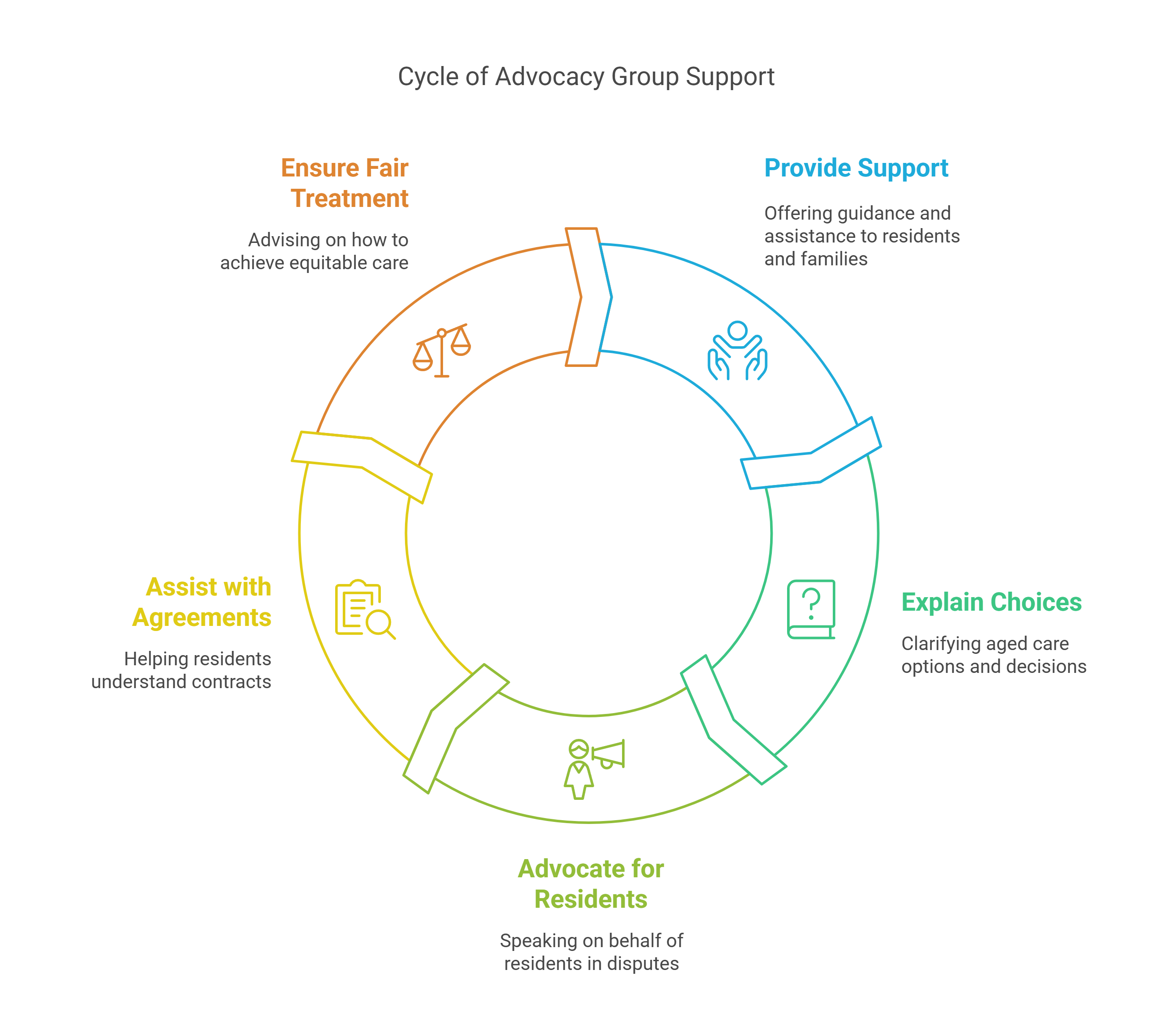What is an Advocacy Group?
An advocacy group is an organization that speaks up for the rights and needs of residents in aged care. This group works to support the people who live in aged care facilities by making sure that their voices are heard. An advocacy group listens carefully to the problems that residents and their families face. They work to get these concerns looked at by the right people. Advocacy group is a team that is committed to making the aged care system better for everyone involved.
The Role of an Advocacy Group in Aged Care

The role of an advocacy group is to give support and guidance to residents and their families. These groups help explain the choices available in aged care. They speak on behalf of the residents when there are issues with care, services, or the rules that govern aged care facilities. An advocacy group may also assist residents with understanding contracts and financial agreements. They help by writing letters, meeting with officials, and sometimes giving advice on how to get fair treatment. In this way, the group plays a key part in improving the care experience.
How Do Advocacy Groups Work?
Advocacy groups work by listening to the concerns of residents and their families. They gather information by meeting people in the aged care facility and by talking with family members. After collecting information, the group brings these issues to meetings with decision makers such as care providers and government officials. They may also prepare reports or recommendations based on what they have learned. The advocacy group works slowly and steadily to help improve the rules and services in aged care. Their actions are planned in clear steps so that everyone can follow the progress.
Who is Involved in an Advocacy Group?
An advocacy group usually includes people who have experience in aged care, such as former residents, family members, or staff who have worked in the field. Many advocacy groups also have volunteers who want to help people in aged care. In addition, the group may include professionals such as lawyers or health care advisers. The work of an advocacy group depends on the combined efforts of all these people. By working together, they are able to share ideas and take action on behalf of residents.
The Benefits of an Advocacy Group
.png)
Advocacy groups offer many benefits to residents and their families. One benefit is that they provide clear information about aged care options and rights. With an advocacy group, residents have a voice that is heard by those who make decisions. This support can help to reduce the stress that residents and families may feel when they face challenges with care. Another benefit is that advocacy groups work to improve the overall system. When they raise issues, they help to bring about changes that lead to better care and safer living environments. The work of an advocacy group makes the aged care system more open and fair.
Challenges Faced by Advocacy Groups
There are challenges that advocacy groups face in their work. Sometimes, it can be hard to get decision makers to listen to the concerns of residents. In some cases, the rules and laws that govern aged care may be difficult to change. Advocacy groups may also have limited resources. They might not have enough money or staff to help every resident who needs support. Despite these challenges, advocacy groups continue to work hard. They find new ways to speak up and work with other organizations that share the same goals.
How to Get Involved with an Advocacy Group
.png)
Residents and family members who have questions or problems in aged care are encouraged to reach out to an advocacy group. These groups welcome input and offer help in many ways. People can join as members or simply seek advice when needed. Advocacy groups often hold meetings, workshops, or community events. These gatherings are opportunities to learn more about aged care rights and to share experiences with others. By getting involved, residents and families can add their voices to the call for better care.
Final Thoughts
An advocacy group in aged care is a team that works to support and speak up for residents. Their work is focused on giving a clear voice to those who may have difficulty being heard. With dedicated staff, volunteers, and professionals, advocacy groups help to bring attention to important issues in aged care. Their actions help to improve rules, services, and the overall experience of living in aged care facilities. The commitment of an advocacy group makes a positive difference by helping everyone feel respected and supported.

.png)
.png)




